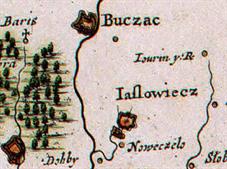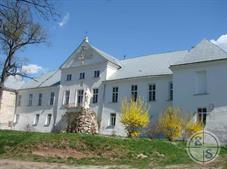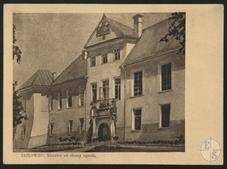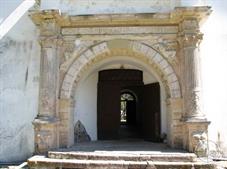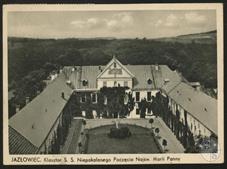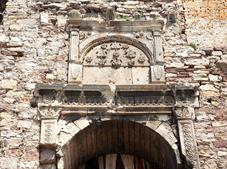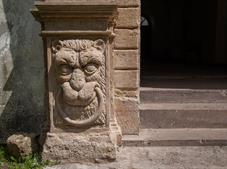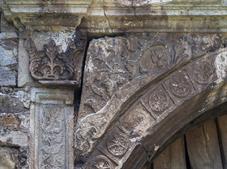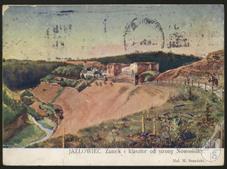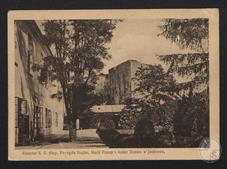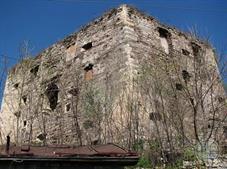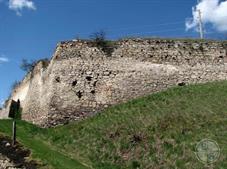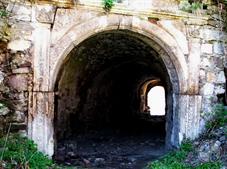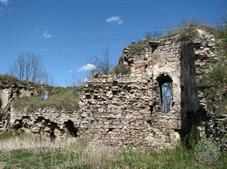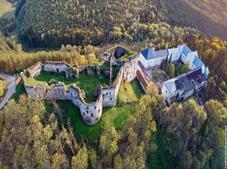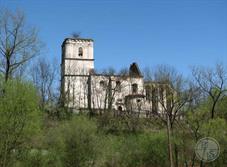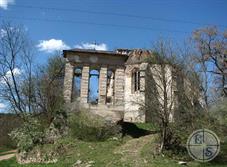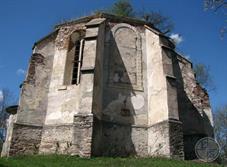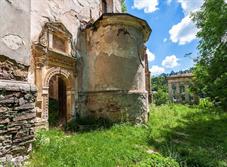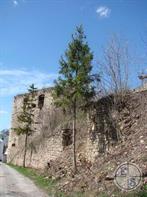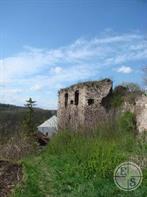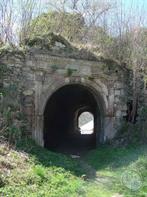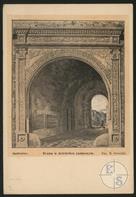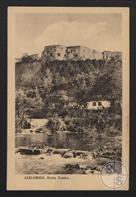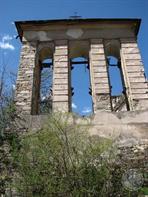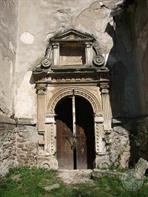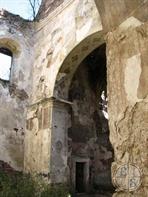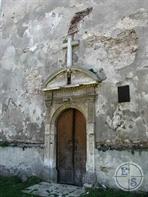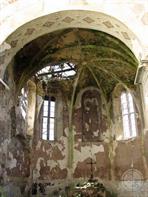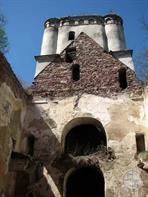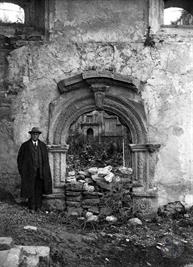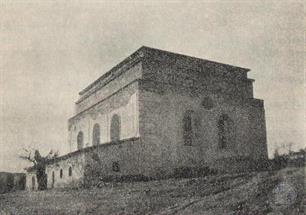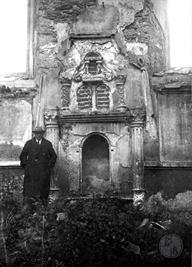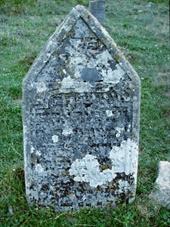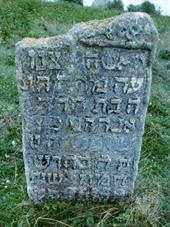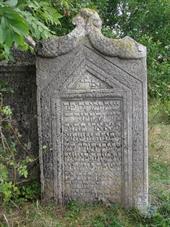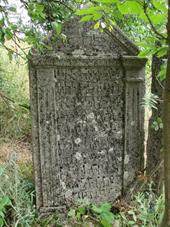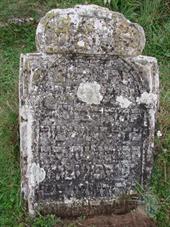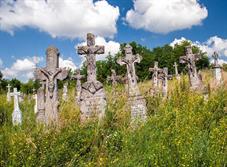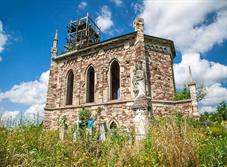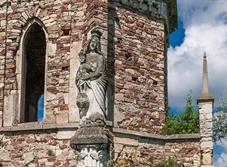Yazlivets
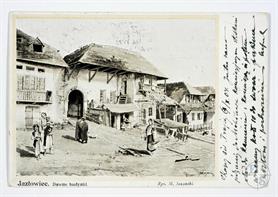 |
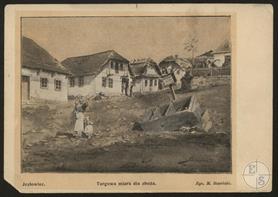 |
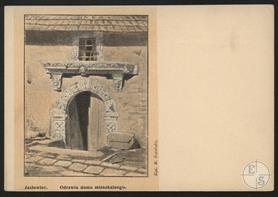 |
| Street in Yazlovets, drawings of the beginning. 20th century | On the street stands a measure for grain | Entrance to a residential building |
Photos:
- Eugene Shnaider
- Dmytro Poliukhovych
- Vladimir Levin, The Center for Jewish Art. Jewish cemetery in Yazlivets
- Українські Архітектурні Пам'ятки. Спадщина Язловець
- Eugene Shnaider
- Dmytro Poliukhovych
- Vladimir Levin, The Center for Jewish Art. Jewish cemetery in Yazlivets
- Українські Архітектурні Пам'ятки. Спадщина Язловець
Catholic cemetery in Yazlivets:
Ternopil region
Yazlivets arose in the 14th century, on the way from Lviv to Moldavia, when the Buchatsky-Yazlovetsky magnates built a castle here. In the middle of the 15th century, Yazlivets became a major center of trade, competing even with Lviv. Large Armenian and Jewish communities appear here. Their forces in the XVI century. the Renaissance Armenian Church (1551, in 1810 rebuilt into the Orthodox Church of St. Nicholas) and the defensive synagogue are being built. Yazlivets becomes a place where one of the largest fairs in Podolia was held. In 1519 the town received Magdeburg rights.
Under the rule of the Ottoman Empire from 1672 to 1683, Yazlivets was a border point, because of this, the Turks greatly fortified the castle - they planned to stay here for a long time. But the uninvited tenants were evicted, but the new-old owners did not need the castle - the border was pushed back, there was nothing to guard. The castle is slowly falling into disrepair.
At the end of the XVIII century. Yazlivets has lost its role as a trading center - apparently, some Columbus found a more direct route to Moldova. In 1863, the monastery of the Sisters of the Immaculate Conception of the Blessed Virgin Mary was founded on the remains of the castle.
In 1940, Yazlivets was transferred to the category of villages.
In 1947 it was renamed into the village of Yablunivka, but in 1991 the historical name was returned.
Under the rule of the Ottoman Empire from 1672 to 1683, Yazlivets was a border point, because of this, the Turks greatly fortified the castle - they planned to stay here for a long time. But the uninvited tenants were evicted, but the new-old owners did not need the castle - the border was pushed back, there was nothing to guard. The castle is slowly falling into disrepair.
At the end of the XVIII century. Yazlivets has lost its role as a trading center - apparently, some Columbus found a more direct route to Moldova. In 1863, the monastery of the Sisters of the Immaculate Conception of the Blessed Virgin Mary was founded on the remains of the castle.
In 1940, Yazlivets was transferred to the category of villages.
In 1947 it was renamed into the village of Yablunivka, but in 1991 the historical name was returned.
One of the highlights of Yazlivets, and of the whole of Ukraine, is the Renaissance - Gothic Assumption Church, built in 1590. Gothic buildings in Ukraine are a rarity.
The Jewish community in Yazlivets was formed already in the 16th century, as evidenced by tombstones. The Jews of Yazlivets suffered along with other residents from the raids of the Tatars; in 1713 only 47 Jews lived.
In the second half of the 18th century Yazlivets belonged to the Poniatowski magnates. Stanislav Poniatowski issued a decree in 1753 that regulated the relationship between the kahal and the city magistrate. Gradually, the number of Jews increased; according to the 1765 census, 544 Jews lived in the city.
Ber from Yazlivets was a syndic of the Podolsk regional vaad. He took part in a dispute with the Frankists in Kamenets-Podolsky in 1756.
According to the 1910 census, 1,298 Jews lived in Yazlovets - 41.7% of the total population.
In 1939, the Jewish population of Yazlivets was only 600 people - 23.8% of the total population. During the Nazi occupation, the Jews of Yazlovets were probably deported to Buchach, where they shared the common fate of the inhabitants of the Buchach ghetto.
In the second half of the 18th century Yazlivets belonged to the Poniatowski magnates. Stanislav Poniatowski issued a decree in 1753 that regulated the relationship between the kahal and the city magistrate. Gradually, the number of Jews increased; according to the 1765 census, 544 Jews lived in the city.
Ber from Yazlivets was a syndic of the Podolsk regional vaad. He took part in a dispute with the Frankists in Kamenets-Podolsky in 1756.
According to the 1910 census, 1,298 Jews lived in Yazlovets - 41.7% of the total population.
In 1939, the Jewish population of Yazlivets was only 600 people - 23.8% of the total population. During the Nazi occupation, the Jews of Yazlovets were probably deported to Buchach, where they shared the common fate of the inhabitants of the Buchach ghetto.
The defensive type synagogue was built in the classical Renaissance style in the 16th century on one of the city hills. In 1916 it was burnt down by Russian troops. In the 1920s, it was restored at the expense of the Yazlivets Jewish community in the USA.
The synagogue was badly damaged during the Second World War, the ruins after the war were dismantled for building material.
The synagogue was badly damaged during the Second World War, the ruins after the war were dismantled for building material.

- Home
- Shtetls
- Vinnytsia region
- Volyn region
- Dnipro region
- Donetsk region
- Zhytomyr region
- Zakarpattia region
- Zaporizhzhia region
- Ivano-Frankivsk region
- Kyiv region
- Kropyvnytskyi region
- Luhansk region
- Lviv region
- Mykolayiv region
- Odessa region
- Poltava region
- Rivne region
- Sumy region
- Ternopil region
- Kharkiv region
- Kherson region
- Khmelnytskyi region
- Chernihiv region
- Chernivtsi region
- Cherkasy region
- Crimea
- Synagogues
- Cemeteries
- Objects & guides
- Gallery
- History
- Contact
Jewish towns of Ukraine
Jewish towns of Ukraine
My shtetl
My shtetl
Donate
